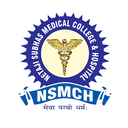Bachelor of Science (BSc) in Accident and Emergency Care Technology
OR
Prepared by Docthub Courses Team ∣
Last updated on 05 Jun 2025
Overview
The goal of the Bachelor of Science in Accident and Emergency Care Technology (B.Sc. in AECT) is to provide students with the skills and information they need to manage emergency medical crises. Accident and emergency care technology course details prepare students to give patients emergency medical attention in case of accidents, crises, or other dire circumstances.

Table of Content
Highlights
| Details | Bachelor of Science (B.Sc.) in Accident and Emergency Care Technology |
| Level | Bachelor’s degree |
| Duration | 3 Years |
| Exam Type | Semester-wise |
| Course Fees | INR 50,000-2 Lakhs |
| Min. Qualification Requirement | 10+2 in the science stream with physics, chemistry, and biology. |
| Average Salary | INR 2.5-4 Lakhs |
| Selection Process | Entrance Exam/Merit-based |
| Min. Aggregate Score | 50% or more in 10+2 in science stream |
Full Form
The full form of B.Sc. in AECT is Bachelor of Science in Accident and Emergency Care Technology.
Eligibility
The eligibility criteria for the B.Sc. in Accident and Emergency Care Technology program explains that candidates should have completed their 10+2 education in the Science stream with Physics, Chemistry, and Biology as main subjects.
Duration
The duration of the Bachelor of Science in Accident and Emergency Care Technology in India is typically three years, divided into six semesters. Each semester usually lasts for six months.
Fees
The b.sc accident and emergency care technology course fees can vary depending on the institute and location. However, the average fee for the course ranges from INR 50,000 to 2 lakhs.
Who Should Do This Course?
Those who desire to work in emergency medicine and have a strong interest in the area should take this course. Strong communication, problem-solving, and decision-making abilities are prerequisites for it.
Additionally, candidates should be able to function well under duress and remain composed in stressful situations.
Why Study This Course?
Students who complete the B.Sc. in AECT program will have a thorough grasp of emergency medical treatment.
It gives them the abilities and information needed to deal with a variety of emergency scenarios and offers patients prompt medical attention.
Employment options in trauma centers, emergency rooms, hospitals, ambulance services, and other healthcare settings become available with this education.
Admission Process
The admission process for the B.Sc. in Accident and Emergency Care Technology program typically involves filling out an application form, submitting necessary documents, and appearing for any required entrance exams or interviews.
Eligible candidates are selected based on their performance in these assessments.
Entrance Exam
Some institutes may conduct entrance exams for admission to the B.Sc. in Accident and Emergency Care Technology program.
These entrance exams assess the candidate's knowledge and aptitude in relevant subjects.
Syllabus
The accident and emergency care technology syllabus covers a range of subjects related to critical care, including:
- Anatomy and physiology
- Pathophysiology
- Pharmacology
- Trauma management
- Medical and surgical procedures
- Patient care
- Emergency medical services (EMS)
- Disaster preparedness and response
Top Private Colleges
Some top private b.sc accident and emergency care technology colleges in India include:
- Manipal College of Allied Health Sciences, Manipal
- Sri Ramachandra Institute of Higher Education and Research, Chennai
- Amrita Vishwa Vidyapeetham, Kochi
- SRM Institute of Science and Technology, Chennai
- KLE Academy of Higher Education and Research, Belagavi
Top Govt Colleges
Some top government b.sc accident and emergency care technology colleges in India include:
- All India Institute of Medical Sciences (AIIMS), New Delhi
- Post Graduate Institute of Medical Education and Research (PGIMER), Chandigarh
- Jawaharlal Institute of Postgraduate Medical Education and Research (JIPMER), Puducherry
- Christian Medical College (CMC), Vellore
- King George's Medical University (KGMU), Lucknow
Scope
The b.sc accident and emergency care technology scope includes working in various areas such as:
- Hospitals
- Emergency Departments
- Trauma Centers
- Ambulance Services
- Disaster Management Organizations
- Research Institutes
Further Study Options
Students might choose to pursue further study to improve their knowledge and job possibilities after finishing the B.Sc. in the AECT program. Some alternatives for more research are:
- Master's degree programs in Emergency Medicine or related fields
- Postgraduate Diploma courses in specialized areas of emergency care
- Research programs in the field of emergency medicine or healthcare management
Career Opportunities After This Course
Graduates of the B.Sc. in AECT program can go into a variety of professions, including:
- Emergency Medical Technician (EMT)
- Emergency Care Technician
- Trauma Care Assistant
- Ambulance Paramedic
- Emergency Room Technician
- Disaster Management Specialist
Salary
The b.sc accident and emergency care technology salary per month may vary on different criteria such as experience, job function, and location.
Starting salaries for professionals at entry level typically range from ₹2.5 lakhs to ₹4 lakhs annually. Specialization and expertise allow experts to command better pay.
Explore colleges for this course
Quick Go Links

Explore this course by location..
by States
by Cities
Related Job Roles
Related Job Vacancies
View All 18 Jobs

FAQS
What is a Bachelor of Science in Accident and Emergency Care Technology?
Students may learn about emergency medical services and be ready for employment in emergency medical technology by enrolling in a Bachelor of Science in Accident and Emergency Care Technology program.
What are the benefits of pursuing a Bachelor of Science in Accident and Emergency Care Technology?
A Bachelor of Science in Accident and Emergency Care Technology can be pursued to gain the knowledge and skills required to work in the emergency medical services sector, as well as practical experience through clinical rotations and career advancement opportunities.
What are the career options for graduates of a Bachelor of Science in Accident and Emergency Care Technology?
The occupations of emergency medical technicians, paramedics, and administrators of emergency medical services are all open to holders of a Bachelor of Science in Accident and Emergency Care Technology.
What are the typical admission requirements for a Bachelor of Science in Accident and Emergency Care Technology?
A high school diploma or its equivalent, a minimum GPA, and preparatory courses in math and science are typical criteria for entry to programs leading to a Bachelor of Science in Accident and Emergency Care Technology.
What subjects are covered in the curriculum of a B.Sc in A&E Care Technology program?
Topics include patient evaluation and treatment, pharmacology, trauma management, and emergency medical services operations are often included in the curriculum of a Bachelor of Science in Accident and Emergency Care Technology program.
Related Course titles

Qualifications
12th Science PCB
Related Specialty
Emergency Radiology
Emergency Medicine







